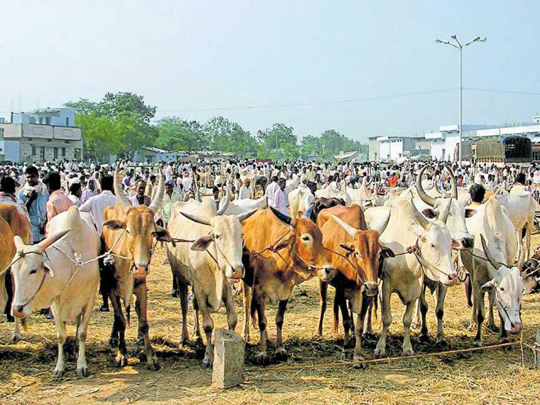A lawmaker from Kerala has announced that he is returning to eating meat, fish and eggs after practising vegetarianism for nearly two decades.

There's nothing unusual about a lapsed vegetarian but V T Balram said his decision was prompted by the Central 'Hindu nationalist' BJP government's attempt to seize the people's right to eat what they wanted.
“I have been living without eating meat, fish or eggs since 1998. But now the time has come to break it and uphold the right politics of food assertively,” Balram said, while posting a video of him eating beef with friends and fellow party workers.
The BJP believes that cows should be protected, because they are considered holy by India's majority Hindu population. Some 18 states have already banned slaughter of cattle.
But millions of Indians, including Dalits, Muslims and Christians, consume beef. And it's another matter, say many, that there's no outrage against the routine selling of male calves by Hindu farmers and pastoralists to middlemen for slaughter as the animals are of little use — bullocks have been phased out by tractors in much of rural India, and villagers need to rear only the occasional bull.
Ironically, the cow has become a polarising animal. Two years ago, a mob attacked a man and killed him over “rumours” that his family ate beef. Vigilante cow protection groups, operating with impunity, have killed people for transporting cattle.
More recently, the chief of BJP's powerful ideological fountainhead Rashtriya Swayamsevak Sangh has called for a countrywide ban on the slaughter of cows. And this week, a senior judge said the cow should be declared a national animal and people who slaughter cows should be sentenced to life in prison.
Many say this is all contributing to effectively killing India's thriving buffalo meat trade. Earlier this week, several states opposed the central government's decision to ban the sale of cattle for slaughter at livestock markets. The government said the order was aimed at preventing uncontrolled and unregulated animal trade.
But the ban, say many, could end up hurting some Rs 25,000 crore in annual beef exports and lakhs of jobs. There are about 19 crore cattle in India, and tens of crores “go out of the system” — die or need to be slaughtered — every year. How will poor farmers sell their animals?
So, as lawyer Gautam Bhatia says, the new rules are “perceived as imposing an indirect beef ban”. He believes the government will find it difficult to defend them if they are challenged in the court — one state court, responding to a petition that they violate the right of a person to chose what he eats, has already put the ban on hold.
The badly-drafted rules, Bhatia says, are “an opportunity for citizens and courts to think once again whether the prescription of food choices is consistent with a Constitution that promises economic and social liberty to all”.
'Dietary profiling'
Critics have been calling the beef ban an example of “dietary profiling” and “food fascism.” Others say it smacks of cultural imperialism, and is a brazen attack on India's secularism and constitutional values. Don't laugh, but there could be a conspiracy to turn India vegetarian, screamed a recent headline.
Many believe that the BJP, under Narendra Modi, appears to be completely out of depth with India's widely diverse food practices which have always been distinguished by religion, region, caste, class, age and gender.
Indians now eat more meat, including beef — cow and buffalo meat — than ever. Consumption of beef grew up 14% in cities, and 35% in villages, according to government data analysed by IndiaSpend, a non-profit data journalism initiative.
Beef is the preferred meat in north-eastern states like Nagaland and Meghalaya. According to National Sample Survey data, 42% Indians describe themselves as vegetarians who don't eat eggs, fish or meat; another baseline government survey showed 71% of Indians over the age of 15 are non-vegetarian.
Governments have tried to impose food bans and choices around the world, mostly using health and environment concerns and hygiene concerns.
Imposing food choices
In the US, for example, groups have rallied against subsidised vegetables, outlawing large sodas, promotion of organic food and taxing fat. Bangkok is banning street food to clean up streets and enforce hygiene standards.
India has done the same in the past. Crops like BT brinjal have been stalled by the government and industrially manufactured food like Maggi noodles banned temporarily amid claims they contained dangerously high levels of lead. Scarcity has also led to bans — a ban of milk sweets in the 1970s in Delhi was justified because milk used to be in short supply.
“To the extent that this ban on cattle slaughter justifies itself by speaking of 'unfit and infected cattle', it seems to invoke public health, but then stops short by not banning the sale of goats, sheep and chicken as well,” sociologist Amita Baviskar told me.
“In fact, the public health argument leads logically to a move towards better regulation like stricter checking of animals for disease, more hygienic slaughter and storage of meat rather than a flat-out ban.”
Clearly, the ban appears to be working already. “Selling red meat, even goat meat, in a BJP-ruled state is now injurious to one's health. Who would want to risk the wrath of the vigilantes?” says Dr Baviskar.
As it is, she says, meat-eating habits of Indians have been changing rapidly in the last couple of decades and the chicken, once regarded as a “dirty bird,” is now the most popular meat.
“I see a greater polarisation taking place between red states (meat-eating) and white states (chicken eating). Within the white states, meat-eaters will have to skulk about, looking over their shoulder as they bite into a beef kebab.”







Comments
Add new comment